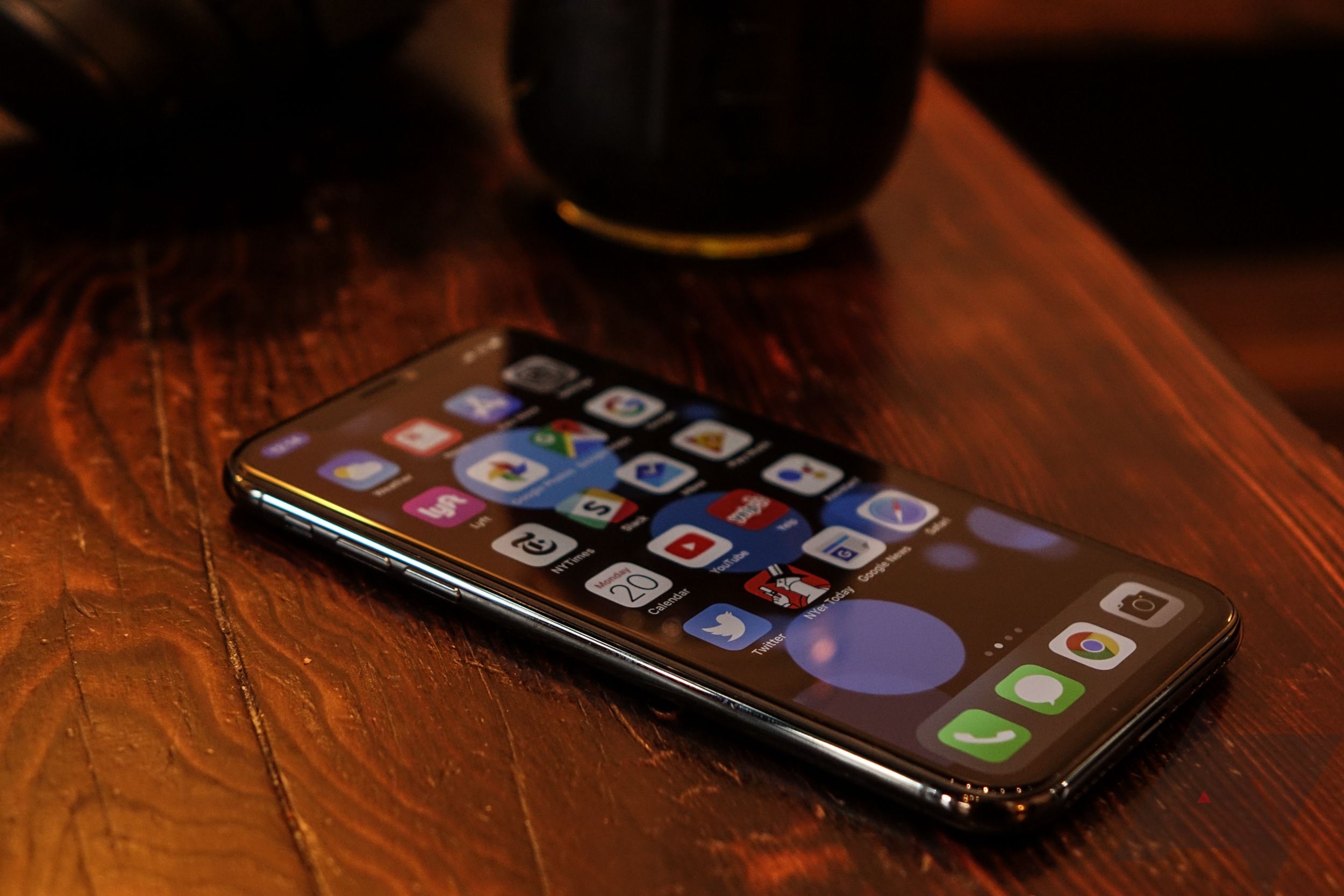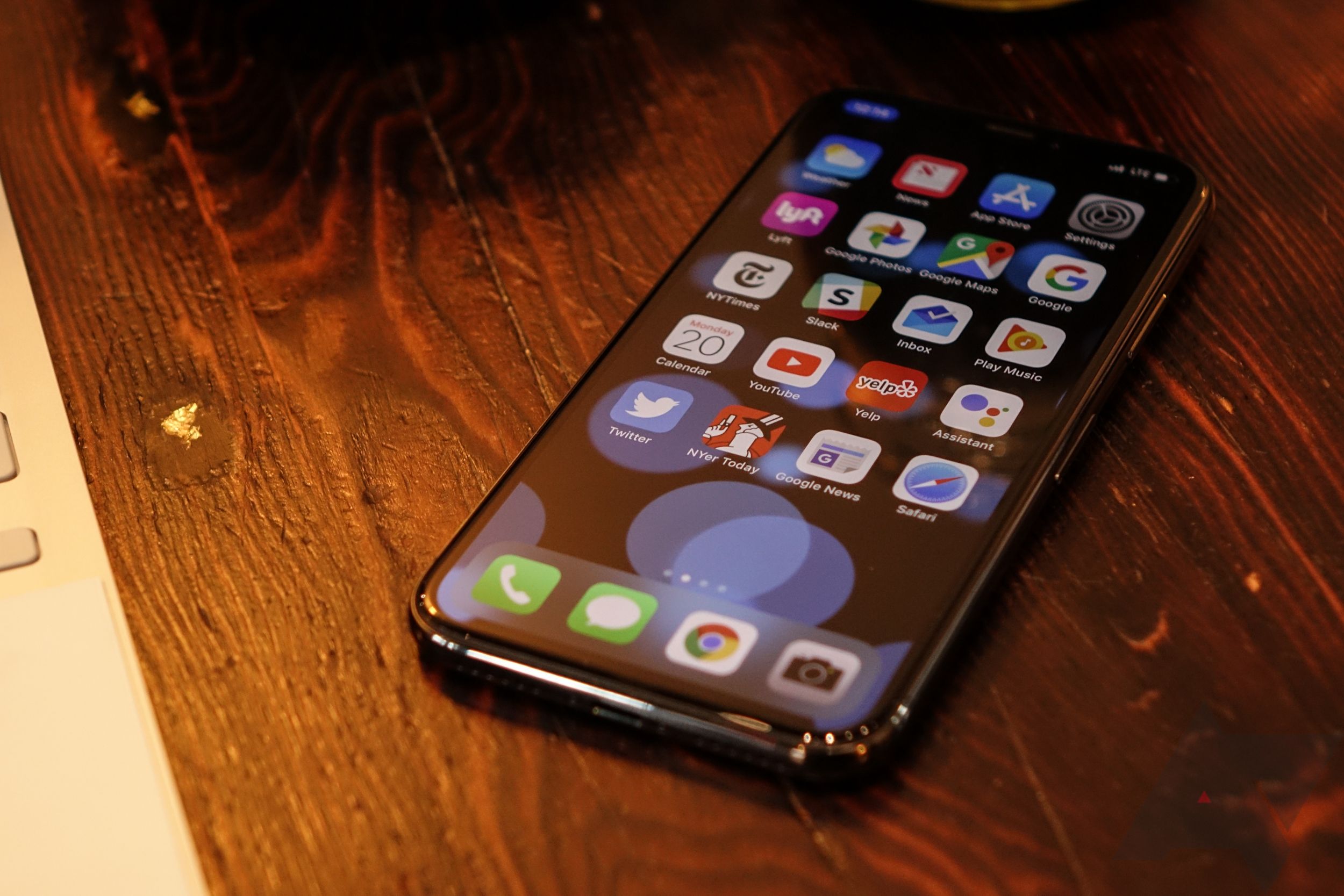
David Ruddock
Contributing since June, 2010
-
3358articles
Page 17
About David Ruddock
David is the former Editor-in-Chief of Android Police and now the EIC of Esper.io. He's been an Android user since the early days - his first smartphone was a Google Nexus One! David graduated from the University of California, Davis where he received his bachelor's degree, and also attended the Pepperdine University School of Law.
Latest Articles

Last August, I published a list of the most and least popular smartphones and tablets used on Android Police. That post was surprisingly popular - and I've had repeated requests for a follow-up. Now that well over a year has passed, I think the time is right for a new installment, and one spanning a far greater time period than the month-long data set I used to compile the last version.

As we say goodbye to 2017, I'd like you to think back to five years ago - specifically, Google five years ago. At that time, if I had told you Google was one of the world's most important consumer electronics manufacturers, you'd probably have laughed at me.Mentally put yourself in 2012: Google's just announced the fourth Nexus phone, the Nexus 4, running Android 4.2 Jelly Bean, along with the Nexus 10 tablet. At Google I/O six months prior, it unveiled the Nexus Q - a device intended to be some sort of smart entertainment hub... and proceeded to cancel its public launch. The $300 Q never lived up to its potential, and given that Android@Home had foundered just a year before that, Google's smart home ambitions, it seemed, were dead in the water. Similarly, its efforts to get into the smart TV box game had fizzled, and the consensus at this point was clear: Google was probably best off just sticking to phones and tablets meant for developers and enthusiasts that didn't sell very well.But, Google didn't just stick to phones and tablets. And that perseverance - despite repeated failures - has paid some serious dividends.

$250. That is what a pair of Bose's take on the truly wireless earbud will set you back, and you won't exactly look stylish for your decision. Like the original, cable-linked SoundSport Wireless, the newest wireless earbuds from Bose aren't lookers, and they're damn expensive. Here's the thing: they do the truly wireless thing very well, and they sound great doing it.

Net neutrality was codified under the FCC's Title II regulatory authority nearly three years ago, regulations that covered both wired and wireless internet providers. The providers were none too happy about this - Verizon's morse code sass being the most memorable response.

Read update
- Recode reports that Andy Rubin has returned to working at Essential. No other details are known at this time.
According to The Verge and other publications, Andy Rubin has taken a leave of absence from his company, Essential. The news followed hours after The Information broke a story that Rubin was engaged in an inappropriate relationship with a subordinate while he led the Android team at Google.

Headphone jacks are on the way out, and Qualcomm is looking to cash in on the situation - while also possibly making your headphones sound less bad over USB-C.

The Snapdragon 845 was announced today, and after the press conference here in Hawaii came to an end this morning, Qualcomm unveiled the next-generation chip's reference platform to journalists.

Qualcomm detailed its next-generation chipset, the Snapdragon 845, at a press conference in Hawaii this morning. The chip features a ground-up redesign of the company's Kryo CPU (now the Kryo 385) and Adreno GPU, marking a major evolution of the platform. The changes to the new Adreno 630 GPU will result in 30% faster graphics performance, and Qualcomm anticipates the platform as a whole will be up to 30% more power-efficient than Snapdragon 835, a chip that has already proven to be excellent on battery life.

Qualcomm announced the Snapdragon 845 today at as press conference in Hawaii, the next generation of the company's flagship mobile processor. As with the outgoing Snapdragon 835, Samsung is the fabrication partner, and the 845 will be built on the company's 10nm process.

On a fall day over eight years ago, I walked into an AT&T store in Davis, my college town, to see the iPhone 3GS. I held it, stared at it, looked at the price card, then back at the phone, and then down at the price card again. Reality began to set in.

"It's interesting." That's what I heard most often when I would show someone ZTE's bizarre dual-screen phone.

The Pixel Buds mark Google's first foray into personal wireless audio. I won't make you wait: it's not gone well.

For years, LG's smartphones have always seemed to trail Samsung's in some crucial ways. Being direct rivals hailing from the same country, this must rub LG the wrong way. Samsung's OLED displays have always bested LG's IPS LCDs. Its cameras have generally been well ahead in terms of quality and features. Samsung was waterproofing its phones before LG was. Samsung Pay beat LG Pay. Samsung's Gear smartwatches have received far more critical acclaim than LG's Android Wear ones.

The HTC U11 Life is one of two new smartphones announced by HTC today. I've been using it for over a week already, though, getting to know HTC's latest attempt to penetrate the ever-elusive premium midrange segment. At $349, the Life is positioned to do battle against the likes of the Moto X4 and, I guess, the 64GB Moto G5S Plus. That's really kind of it.

When Razer purchased Nextbit last year, fans were understandably concerned that the company might be gobbled up by the gaming-focused brand for its intellectual property and engineering talent, without explicit intent to produce another smartphone. Well, those concerns can (obviously) be laid to rest: Razer built a phone. And by Razer, I mean the former Nextbit team working inside Razer. It's called the Razer Phone. Creative, I know.

Google Pixelbook review: The laptop Chrome OS needs, but maybe doesn't yet deserve
Coming to us seven years after the first Chromebook
Chromebooks have come a long way from the dark, buggy days of the CR-48 and laggardly Intel Atom processors. Back when Chrome OS really was just a browser, it was fairly easy to write off as just another strange Google experiment, unlikely to succeed and conceptually far ahead of its time. Who could get by on a laptop with just the web? I, like many people, thought Chromebooks wouldn't appeal to anyone.

I've been using the Google Pixel 2 XL now for over a week. Its predecessor, the 2016 Pixel XL, is what I called the best Android phone ever six months after its release. I'm fairly certain that the 2 XL will take the original's title, at least in my opinion, without issue.




